19+ Sample Commission Contracts
-

Artist Commission Contract Template
download now -
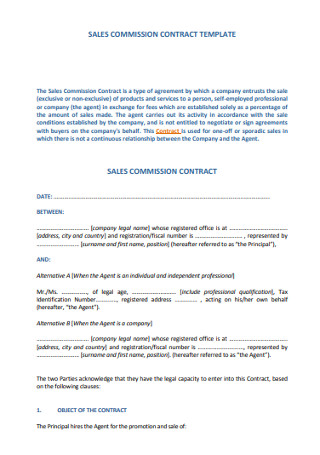
Sales Employment Commission Contract
download now -
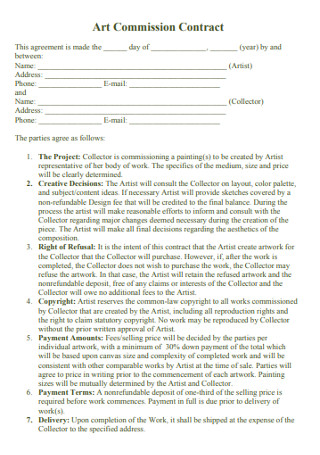
Art Commission Contract
download now -
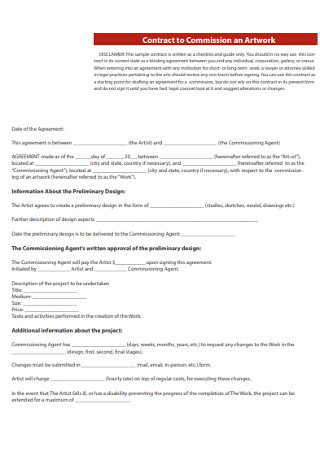
Contract to Commission an Artwork
download now -
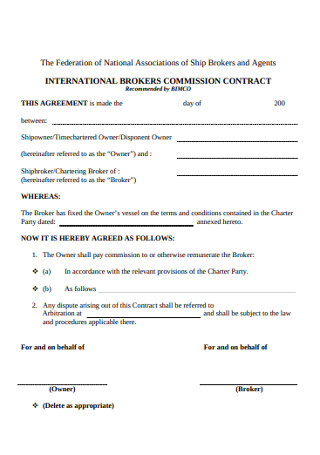
Brokers Contractor Commission Agreement
download now -
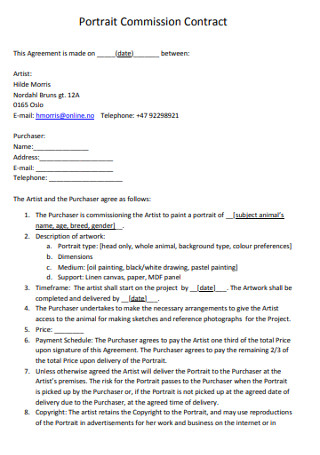
Hair Stylist Commission Contract
download now -
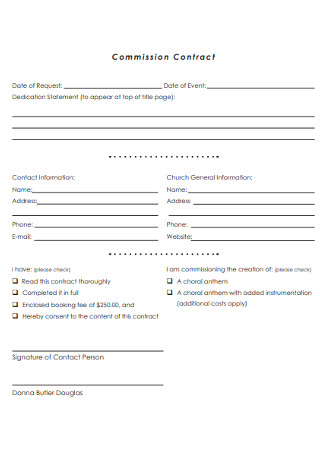
Sample Sales Rep Commission Contract
download now -
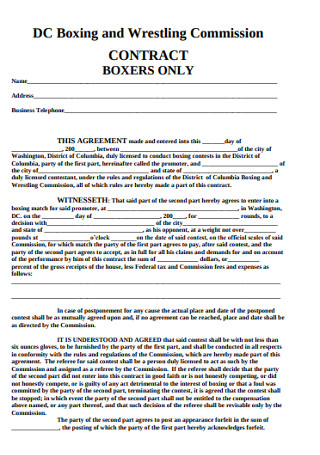
Basic Salary Commission Contract
download now -
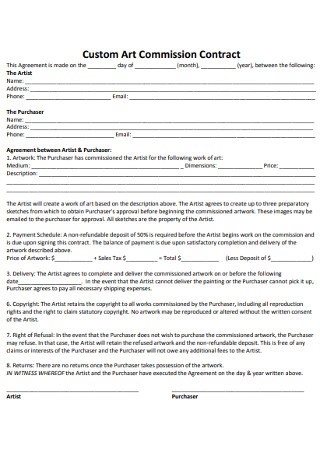
Business Custom Art Commission Contract
download now -
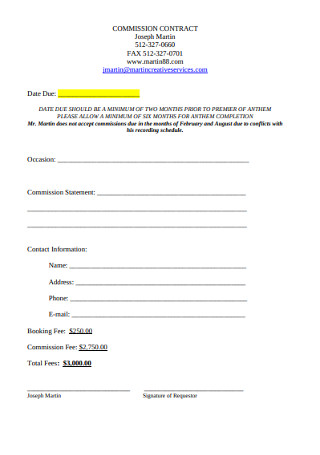
Standard Service Commission Contract
download now -
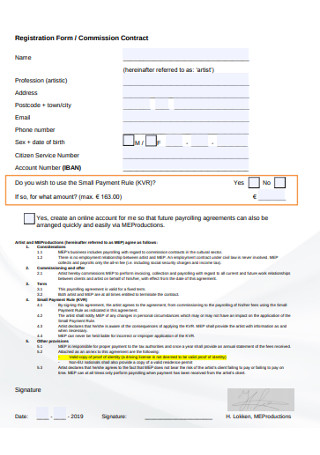
Commission Agency Contract Registration Form
download now -
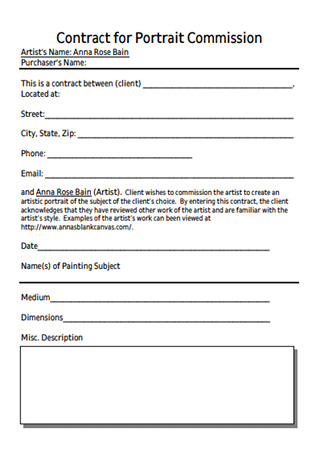
One Page Contract for Portrait Commission
download now -
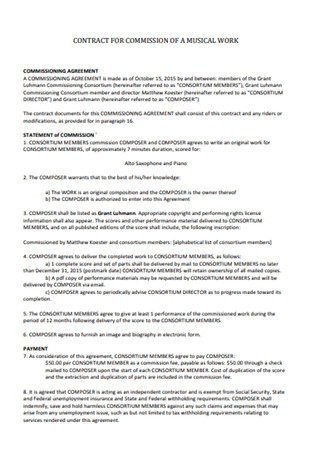
Freelance Contract for Commission of a Musical Work
download now -
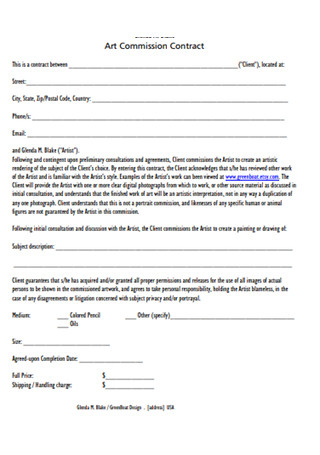
Simple Legal Art Commission Contract
download now -
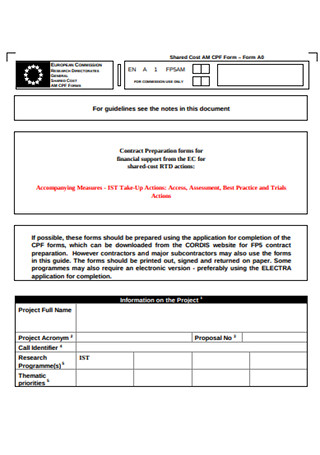
Horse Sale Commission Contract Forms
download now -
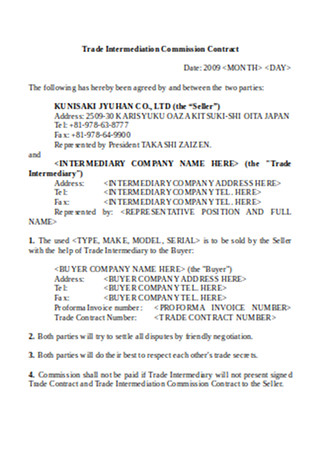
Inter-mediation Illustrator Commission Contract
download now -
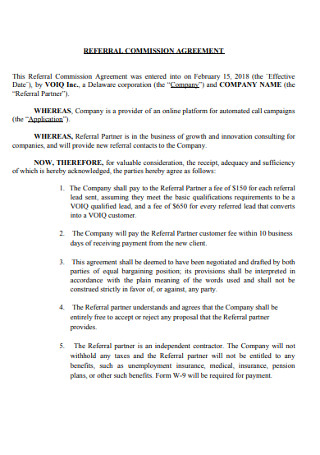
Sales manager Referral Commission Contract Agreement
download now -
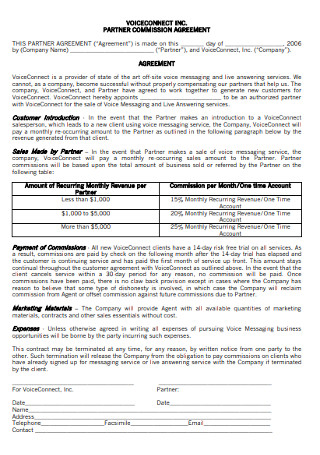
Partner Commission Offer Letter Contract
download now -
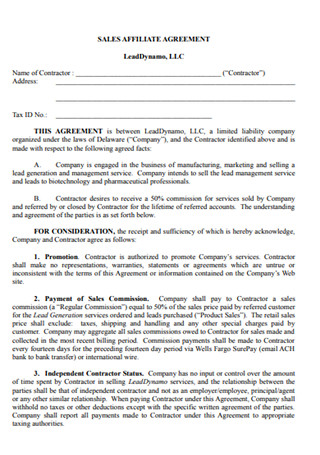
Sales Breach Commission Contract
download now -
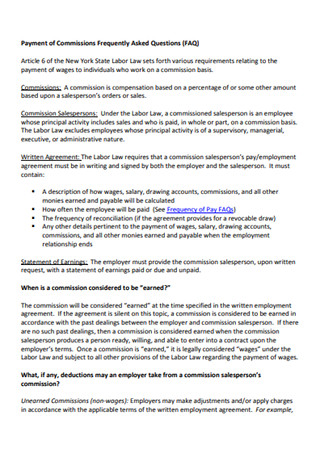
Payment of Commission of Contract Deal Agreement
download now
FREE Commission Contract s to Download
19+ Sample Commission Contracts
What Is a Commission Contract?
The Essential Clauses in a Commission Contract
The Advantages of Working on a Commission-Based Job
How to Write a Commission Contract
FAQs
When is a commission contract necessary?
Is commission-based pay benefits for employees?
What is the benefit of commission-based pay for employers?
How to calculate commission?
Are commission-based jobs worth it?
What Is a Commission Contract?
If you plan on working in a commission-only job, there are several things you must consider. First, you must ensure that you have the appropriate skills to do the job. Another thing to consider is your knowledge of how it works. Thus, it is essential to discuss your employer’s compensation details and terms before you begin the job. This is where a commission contract plays an important role. A commission contract is a business agreement between an employer and an employee. This type of agreement outlines details and information regarding commission rates and payments, as well as the terms and conditions. Obtaining a commission contract protects both parties from deal-breaking and liability.
According to the Bureau of Labor Statistics, the employment rate of real estate brokers and sales agents in the United States is expected to grow 7 percent from 2018 to 2028.
In Statista figures from 2018, 86 percent of home buyers contract real estate agents when searching for homes in the United States.
Based on Statista, there are 306.5 thousand real estate agents and broker employees in the United States in 2016.

The Essential Clauses in a Commission Contract
A commission contract is an essential employment contract that lays out the terms and obligations of a commission-based employee. A well-written and properly drafted commission contract should include appropriate components to make the contract informative and accurate. Here are the essential clauses that should be present in your commission contract.
The Advantages of Working on a Commission-Based Job
Working on a commission-based job like a sales rep allows you to earn more than salaried positions employees do. To do this, you just need to generate more sales. Although this industry sometimes has ups and downs, it certainly has several advantages. Below are the pros of working on commission-based jobs.
How to Write a Commission Contract
Before an employer hires a new employee for a commission position, it is always necessary to set forth terms and conditions for the job. And that is why both parties need to secure a commission contract. A commission contract is a written document that describes the work agreement between the two. Hence, a commission contract must be professionally written and in great detail. So, if you are writing a commission contract, you might as well get through the following instructions on how to make the contract accurate. Check out the steps below.
Step 1: Present an Introduction
Begin drafting a commission contract by writing an introductory phrase. In the introduction, you have to state what the agreement is about and who the parties involved. It is also important to include the position of each party. For example, this commission contract is entered into between the employer or company’s name and the employee’s name. The contract also should include phone details and addresses of both parties.
Step 2: Describe the Job
Once you have already started with an introduction, the next thing you need to do is to describe the terms of service. This means that the commission contract must lay out what the employee is required to do under the company. However, the scope of work is not only limited to the job-related responsibilities, but an employer can also add other duties in the commission contract as long as it is discussed with the employee, and the latter agrees to it.
Step 3: Add the Commission Details
Now that the scope of work is clear and defined, you need to add in the commission contract are the commission details. This section in the contract should be clear with both parties. The employer must outline when and how the commission-based employee earns the commission payment. It is also essential to discuss how the commission is calculated, and the average percentage the employee will get after sales are made. The commission contract should also present how often the commission pay takes place in a month.
Step 4: Include an Authorization Clause
After providing commission details on the commission contract, you may proceed with writing an authorization clause. In this area, it should be stated that the employer or the company authorizes the employee to sell goods and services on their behalf. The authorization clause in the commission work contract should also include that the company allows the employee to make use of company-owned documents and forms.
Step 5: Specify Terms and Conditions
Next is adding the terms and conditions agreed by the parties. The terms and conditions or T&C are the do’s and don’t of the contract, and the person on service must abide. The terms and conditions may be of various forms, such as liabilities, cooling-off periods, etc. An employer can also set conditions for the employee regarding the use of documentations or add a non-compete clause that prohibits the employee from working with competing companies under the same position.
Step 6: Finalize with an Acceptance
End your commission contract with an acceptance. This means that both parties must sign the commission contract and then date it. Signing the contract signifies that both employer and employee agree to and understand its contents. In every business contract, a signature from the people involved is necessary to avoid confusion and problems in the future.
FAQs
When is a commission contract necessary?
A commission business contract should be of use once an employer hires a new employee under a commission position. This is to outline terms and conditions regarding the compensation rate and details.
Is commission-based pay benefits for employees?
Yes, commission-based pay is beneficial for employees because, with this, they are based on the number of sales they make. Hence, this will give them the motivation to go beyond the minimum job requirement to receive a higher commission pay.
What is the benefit of commission-based pay for employers?
Employers benefit from a commission-based pay because they are only required to pay their employees once there is a sale. This also means that employers will not pay for works that are not related to sales.
How to calculate commission?
Employers have different structures as a basis for the calculation of employee commissions. The simplest form is the gross sale commission, where an employee can receive an average of 20 to 30 percent of the commission from the sale.
Are commission-based jobs worth it?
The commission-based job is the avenue for job seekers that like being in a challenging field. However, just like any other job, commission-based jobs have ups and downs. But, for some professionals working in this platform, commission-based jobs are worth it as long as you have the skills needed to succeed, and it fits the job description.
The importance of business contracts like the commission contract is that it outlines the full understanding of terms and scope of work between two parties. And business contracts ensure that there are no misunderstandings or problems once the work starts. So before you enter into a commission-based career, it is always important to discuss terms with your employer through a commission contract to secure your resources and rights. Looking for a professionally written commission contract? Check our templates now!
